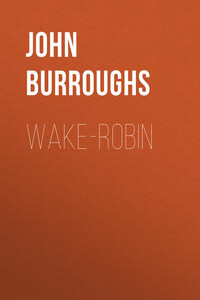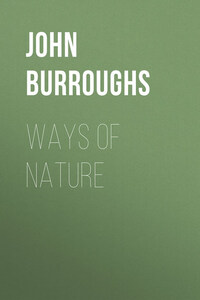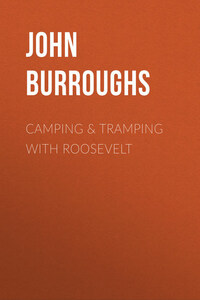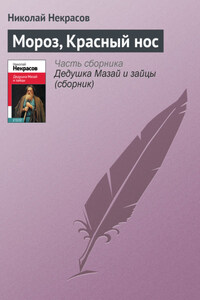John Burroughs's first book, "Wake-Robin," contained a chapter entitled "The Invitation." It was an invitation to the study of birds. He has reiterated it, implicitly if not explicitly, in most of the books he has published since then, and many of his readers have joyfully accepted it. Indeed, such an invitation from Mr. Burroughs is the best possible introduction to the birds of our Northeastern States, and it is likewise an introduction to some very good reading. To convey this invitation to a wider circle of young readers the most interesting bird stories in Mr. Burroughs's books have been gathered into a single volume. A chapter is given to each species of bird, and the chapters are arranged in a sort of chronological order, according to the time of the bird's arrival in the spring, the nesting time, or the season when for some other reason the species is particularly conspicuous. In taking the stories out of their original setting a few slight verbal alterations have been necessary here and there, but these have been made either by Mr. Burroughs himself or with his approval.
It is sure to be a bright March morning when you first hear the bluebird's note; and it is as if the milder influences up above had found a voice and let a word fall upon your ear, so tender is it and so prophetic, a hope tinged with a regret.
There never was a happier or more devoted husband than the male bluebird. He is the gay champion and escort of the female at all times, and while she is sitting he feeds her regularly. It is very pretty to watch them building their nest. The male is very active in hunting out a place and exploring the boxes and cavities, but seems to have no choice in the matter and is anxious only to please and encourage his mate, who has the practical turn and knows what will do and what will not. After she has suited herself he applauds her immensely, and away the two go in quest of material for the nest, the male acting as guard and flying above and in advance of the female. She brings all the material and does all the work of building, he looking on and encouraging her with gesture and song. He acts also as inspector of her work, but I fear is a very partial one. She enters the nest with her bit of dry grass or straw, and, having adjusted it to her notion, withdraws and waits near by while he goes in and looks it over. On coming out he exclaims very plainly, "Excellent! excellent!" and away the two go again for more material.
I was much amused one summer day in seeing a bluebird feeding her young one in the shaded street of a large town. She had captured a cicada or harvest-fly, and, after bruising it awhile on the ground, flew with it to a tree and placed it in the beak of the young bird. It was a large morsel, and the mother seemed to have doubts of her chick's ability to dispose of it, for she stood near and watched its efforts with great solicitude. The young bird struggled valiantly with the cicada, but made no headway in swallowing it, when the mother took it from him and flew to the sidewalk, and proceeded to break and bruise it more thoroughly. Then she again placed it in his beak, and seemed to say, "There, try it now," and sympathized so thoroughly with his efforts that she repeated many of his motions and contortions. But the great fly was unyielding, and, indeed, seemed ridiculously disproportioned to the beak that held it. The young bird fluttered and fluttered, and screamed, "I'm stuck, I'm stuck!" till the anxious parent again seized the morsel and carried it to an iron railing, where she came down upon it for the space of a minute with all the force and momentum her beak could command. Then she offered it to her young a third time, but with the same result as before, except that this time the bird dropped it; but she reached the ground as soon as the cicada did, and taking it in her beak flew a little distance to a high board fence, where she sat motionless for some moments. While pondering the problem how that fly should be broken, the male bluebird approached her, and said very plainly, and I thought rather curtly, "Give me that bug," but she quickly resented his interference and flew farther away, where she sat apparently quite discouraged when I last saw her.
One day in early May, Ted and I made an expedition to the Shattega, a still, dark, deep stream that loiters silently through the woods not far from my cabin. As we paddled along, we were on the alert for any bit of wild life of bird or beast that might turn up.
There were so many abandoned woodpecker chambers in the small dead trees as we went along that I determined to secure the section of a tree containing a good one to take home and put up for the bluebirds. "Why don't the bluebirds occupy them here?" inquired Ted. "Oh," I replied, "bluebirds do not come so far into the woods as this. They prefer nesting-places in the open, and near human habitations." After carefully scrutinizing several of the trees, we at last saw one that seemed to fill the bill. It was a small dead tree-trunk seven or eight inches in diameter, that leaned out over the water, and from which the top had been broken. The hole, round and firm, was ten or twelve feet above us. After considerable effort I succeeded in breaking the stub off near the ground, and brought it down into the boat. "Just the thing," I said; "surely the bluebirds will prefer this to an artificial box." But, lo and behold, it already had bluebirds in it! We had not heard a sound or seen a feather till the trunk was in our hands, when, on peering into the cavity, we discovered two young bluebirds about half grown. This was a predicament indeed!














